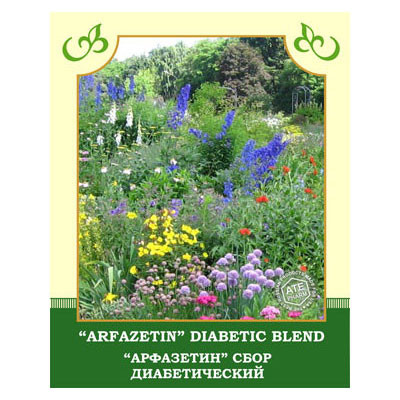RARITAN, N.J., August 8, 2014 – Janssen Pharmaceuticals, Inc.
announced
today the U.S. Food and Drug Administration (FDA) has approved
Invokamet, a fixed dose therapy combining canagliflozin and metformin
hydrochloride in a single tablet, for the treatment of adults with type 2
diabetes.
Invokamet provides the clinical attributes of Invokana
(canagliflozin), the
first sodium glucose co-transporter 2 (SGLT2) inhibitor available in the
United States, together with metformin, which is commonly prescribed
early in the treatment of type 2 diabetes. Invokamet is the first
fixed-dose combination of an SGLT2 inhibitor with metformin approved in
the United States.
"Invokamet combines, in one tablet, two complementary therapeutic
approaches proven effective for managing type 2 diabetes,” said Richard
Aguilar, M.D.*, Medical Director of Diabetes Nation.
"Canagliflozin works with the kidney to promote the loss of glucose in
the urine, whereas metformin decreases the production of glucose in the
liver and improves the body’s response to insulin."
Invokamet is indicated as an adjunct to diet and exercise to improve
glycemic control in adults with type 2 diabetes mellitus who are not
adequately controlled by treatment that includes either canagliflozin or
metformin, or who are already being treated with both canagliflozin and
metformin as separate
medications. Invokamet should not be used in patients with type 1
diabetes or
for the treatment of diabetic ketoacidosis. Study results demonstrated
that
administration of Invokamet was equivalent to co-administration of
corresponding doses of canagliflozin and metformin as individual
tablets.
Invokamet will be available in tablets containing canagliflozin 50
milligrams (mg) or 150 mg, and metformin 500 mg or 1000 mg. The
recommended dosing is twice daily. The prescribing information for
Invokamet also contains a boxed warning for lactic acidosis, a rare, but
serious complication that can
occur due to metformin accumulation.
"As with Invokana, Invokamet provides adults with type 2 diabetes an
oral therapy that lowers blood sugar and is also associated with
reductions in body weight and systolic blood pressure," said Jimmy Ren,
Ph.D., Therapeutic Area Lead, Metabolics, Medical Affairs, Janssen
Pharmaceuticals, Inc.
"The available doses of Invokamet allow physicians to tailor therapy for
individual patient needs and offer an alternative for patients who may
be able to reduce the number of tablets they take each day."
In March 2013, the FDA approved canagliflozin -- Invokana -- as a
single agent, and it is the number-one branded non-insulin type 2
diabetes medication newly prescribed by U.S. endocrinologists. It is also the second most common branded therapy prescribed by primary care physicians when adding or
switching therapies in patients. Since its launch, more than one
million prescriptions have been written for Invokana.
The co-administration of Invokana and metformin has been studied in
six
Phase 3 clinical studies that enrolled 4,732 patients with type 2
diabetes. The Phase 3 studies evaluated Invokana in combination with
metformin compared to metformin alone or to metformin plus another
diabetes therapy. The studies were part of the comprehensive global
Phase 3 program for Invokana that enrolled 10,285 patients, one of the
largest clinical programs in type 2 diabetes submitted to health
authorities to date. The Phase 3 studies showed that the combination of
Invokana and metformin lowered blood sugar and, in pre-specified
secondary endpoints, was associated with significant reductions in body
weight and systolic blood pressure.
In two studies comparing Invokana plus metformin to current standard
treatments plus metformin – one studying sitagliptin and the other
studying glimepiride – Invokana dosed at 300 mg provided greater
reductions in A1C levels and body weight than either comparator. A1C is
the percent of red blood
cell hemoglobin with glucose attached to it and an indicator of average
blood glucose over the previous two to three months. In the two studies,
the overall incidence of adverse events was similar with Invokana and
the comparators.
Results from the Phase 3 studies showed that the most common adverse
events with Invokana are female genital mycotic (fungal) infections,
urinary tract infections and increased urination. These specific adverse
events were generally mild to moderate in intensity and infrequently
led to discontinuation in Phase 3 studies. The most common adverse
reactions due to initiation of metformin, as noted in the prescribing
information for that medication, are diarrhea, nausea/vomiting,
flatulence, asthenia, indigestion, abdominal discomfort, and headache.
Hypoglycemia does not occur in patients receiving metformin alone under
usual circumstances of use. Invokana can increase the risk of
hypoglycemia when combined with insulin or a medication that increases
insulin levels (e.g., a sulfonylurea). Therefore,
a lower dose of insulin or insulin-raising medication may be required to
minimize the risk of hypoglycemia when used in combination with
Invokamet.
Janssen Pharmaceuticals, Inc. and its affiliates have rights to
canagliflozin through a license agreement with Mitsubishi Tanabe Pharma
Corporation. Janssen Pharmaceuticals, Inc. and its affiliates have
marketing rights in North America, South America, Europe, the Middle
East, Africa, Australia, New Zealand and parts of Asia.
On April 25, 2014, Janssen - Cilag International NV announced that
the European Commission (EC) approved Vokanamet (a fixed-dose therapy
combining canagliflozin and immediate release metformin hydrochloride in
a single tablet) in the European Union, for the treatment of adults
with type 2 diabetes mellitus to improve glycemic control. Invokana is
approved as a single agent in Aruba, Australia, Brazil, Canada, Chile,
Costa Rica, El Salvador, the European Union (31 countries), Guatemala,
Kuwait, Mexico, Peru, Singapore, South Korea, Switzerland, United Arab
Emirates, and the United States.
About Type 2 Diabetes
An estimated 371 million people worldwide are living with diabetes and approximately 29 million people have diabetes in the United States. Type 2 diabetes comprises 90 to 95 percent of people with diabetes,
which is chronic and affects the body's ability to metabolize sugar
(glucose), and is characterized by the inability of pancreatic beta cell
function to keep up with the body's demand for insulin.
Nearly half of adults with type 2 diabetes do not achieve recommended
levels of glucose control, and if left uncontrolled, type 2 diabetes
can lead to serious complications. Improved glycemic control has been demonstrated to reduce the on set and progression of these complications.
About Janssen Pharmaceuticals, Inc.
As a member of the Janssen Pharmaceutical Companies of Johnson &
Johnson,
Janssen Pharmaceuticals, Inc. is dedicated to addressing and resolving
the major unmet medical needs of our time. Driven by our commitment to
patients, healthcare professionals, and caregivers, we strive to develop
sustainable and integrated healthcare solutions by working in
partnership with all stakeholders on the basis of trust and
transparency. Our daily work is guided by meeting goals of excellence in
quality, innovation, safety, and efficacy in order to advance patient
care.
 PRODUCT DESCRIPTION
PRODUCT DESCRIPTION
